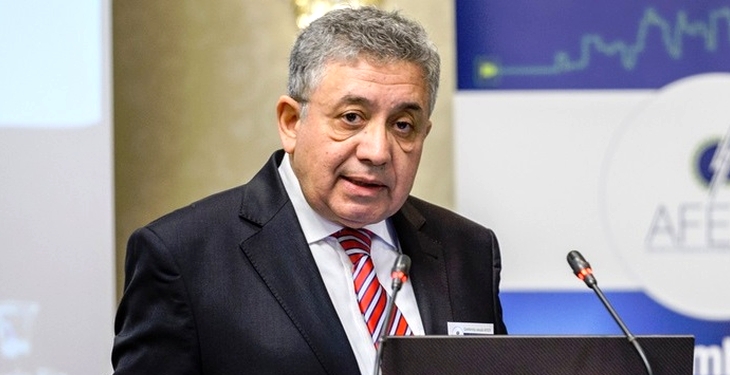The cold weather caused a dramatic hike in energy prices in the short term all over Europe, with a level of almost 100 euros a MWh of electricity reached Monday in Romania, but this level may not be sustainable in the longer term, tells energynomics.ro, Ion Lungu, president of the Association of Electricity Producers of Romania (AFEER).
“Personally, I don’t think that electricity prices will rise further,” says Lungu, which notes that the Romanian market is fairly well correlated with the external one. “We had a perfect correlation with foreign markets, even when they were not coupled. Whenever prices are higher in the West, especially in Hungary, we grow them, too,” says Lungu. “The prices show, however, an important thing: that the market works. There are people now – in the sense of producers – that make a lot of money these days,” AFEER head also says.
He argues that the very low flow of the Danube is also responsible for the increase in electricity tariffs.
“Danube flow is somewhere at half when compared to its multi-annual flow. We produce less hydro, for which also prices surge. Danube produce about 60% of the hydropower of Romania, ie about 15% of national energy consumption, given that 25% of the total consumption of energy is hydro… And now Danube affects about 10% of Romania’s energy production.”
AFEER notified Transelectrica about the export ban issue
Following the government’s decision last week to temporarily ban exports of energy in the event of crisis situations, AFEER requested clarification on the modalities of notification of producers and traders so that they can react in a timely manner for the purposes of honoring outstanding contracts.
A possible banning of exports would lead to a decrease in domestic prices, but could pose problems if it takes place after the market closes.
“We made an address to Transelectrica today (n.r. Monday, January 16th) to announce the day before – today, for example, by 9:00 (pm) – any limitations of tomorrow. Important would be that the notification be made before the market closes for the day ahead,” said Lungu.
Producers should sell energy either on the local market or to honor their contracts by purchasing form foreign energy sources, for the already contracted export deals.
Energy prices on the spot market at the Romania’s OPCOM exchange have reached 449 lei (100 euros) per MWh on Monday morning between 9:00 and 10:00 am, the level being equal to that of the stock markets in Hungary, Slovakia and Czech Republic, according to OPCOM data, quoted by Agerpres.
In recent days, the Romanian energy consumption temporarily increased to a peak of over 9,700 MW.
The government last week approved a Decision which provides, inter alia, that exports of electricity may be prohibited in crisis situations. Other measures provide switching to alternative fuel (fuel oil) and to limit the supply of some industrial consumers.
The Decision is a temporary precautionary measure and can only be applied against the background of a crisis in the energy market over the next period (January 16 to February 15, 2017) and only if public safety or the system itsefl are threatened, reads a release of the Ministry of Energy.

